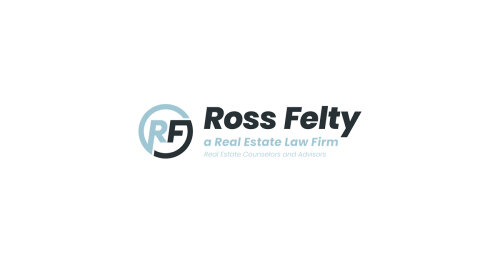Best Nonprofit & Charitable Organizations Lawyers in Florida
Share your needs with us, get contacted by law firms.
Free. Takes 2 min.
Or refine your search by selecting a city:
List of the best lawyers in Florida, United States
About Nonprofit & Charitable Organizations Law in Florida, United States
Nonprofit and charitable organizations in Florida serve vital roles in communities, offering services that range from social assistance to educational programs. These organizations typically operate not for profit but rather for public benefit, and they rely on donors, grants, and volunteers to fulfill their missions. In Florida, the laws governing nonprofits ensure that organizations act ethically, transparently, and in compliance with both state and federal regulations. These laws cover how nonprofits are formed, operated, and dissolved, and include requirements for governance, fundraising, tax exemption, and reporting.
Why You May Need a Lawyer
Navigating the legal landscape of nonprofit and charitable organizations can be complex. There are many situations where consulting a lawyer who specializes in this field can help, such as:
- Forming a nonprofit corporation and drafting foundational documents like articles of incorporation and bylaws
- Filing for tax-exempt status with the Internal Revenue Service and the state of Florida
- Ensuring compliance with state and federal regulations, including charitable solicitation laws
- Managing employment law issues, including hiring and retaining staff or working with volunteers
- Understanding and maintaining proper governance structures, including boards of directors and officer responsibilities
- Navigating mergers, dissolutions, or transitions of organizational structure
- Addressing disputes between board members or between the organization and third parties
- Responding to audits, investigations, or enforcement actions from regulatory bodies
- Protecting intellectual property and managing risk
- Overseeing large fundraising campaigns, grant applications, or accepting large gifts
Local Laws Overview
Several Florida-specific laws and regulations affect nonprofit and charitable organizations:
- To operate as a nonprofit corporation in Florida, organizations must file articles of incorporation with the Florida Department of State Division of Corporations.
- Charitable organizations that solicit donations from the public must register annually with the Florida Department of Agriculture and Consumer Services under the Solicitation of Contributions Act.
- Nonprofits seeking federal tax-exempt status must apply to the IRS, most often under Section 501(c)(3), and may also apply for exemption from Florida corporate income tax.
- Florida law specifies requirements for corporate governance, including appointing a board of directors and holding regular meetings.
- Nonprofits must file annual reports with the Division of Corporations to maintain active status.
- Organizations must comply with laws surrounding conflicts of interest, fundraising, and recordkeeping.
- Dissolutions or mergers require meeting specific statutory obligations to distribute assets appropriately.
- Employment laws, including those regarding volunteers, wage and hour issues, and workplace safety, all apply to nonprofits operating in Florida.
Frequently Asked Questions
What is the process for starting a nonprofit in Florida?
To start a nonprofit in Florida, you must file articles of incorporation with the state, create bylaws, appoint a board of directors, obtain an Employer Identification Number, register with the state for fundraising, and apply for tax-exempt status with the IRS.
What types of nonprofits can operate in Florida?
Florida recognizes various nonprofit types, such as charitable, religious, educational, and social organizations. Most nonprofits seek federal tax-exempt status under IRS Section 501(c)(3), but other designations exist depending on the purpose.
Is it necessary to register for fundraising?
Yes, most charitable organizations soliciting donations from Florida residents must register annually with the Florida Department of Agriculture and Consumer Services before engaging in fundraising activities.
How does a Florida nonprofit maintain tax-exempt status?
Nonprofits must adhere to IRS rules about their activities, refrain from benefiting private individuals, and file annual information returns (Form 990 series) with the IRS. They also need to remain compliant with state registration and reporting requirements.
What are the annual reporting requirements?
Nonprofits must file an annual report with the Florida Division of Corporations to maintain active status. If the organization is tax-exempt, it must also file the appropriate IRS Form 990 each year.
Can a nonprofit pay its board members?
In Florida, board members can be compensated, but this must be disclosed and should not conflict with the organization's mission. Compensation agreements should be reasonable and appropriately documented to avoid IRS concerns.
What happens if a Florida nonprofit dissolves?
Upon dissolution, assets of the nonprofit must be distributed in accordance with state laws and the organization’s articles of incorporation or bylaws. Typically, assets are transferred to other tax-exempt organizations.
Are there restrictions on political activities by nonprofits?
Yes, 501(c)(3) organizations are strictly prohibited from participating in political campaigns for or against candidates. Some lobbying is permitted, but within IRS-defined limits.
Does a Florida nonprofit need insurance?
While not usually required by law, it is highly recommended that nonprofits carry insurance such as general liability, directors and officers liability, and workers' compensation to manage risks.
What records must a Florida nonprofit keep?
Nonprofits should maintain copies of articles of incorporation, bylaws, meeting minutes, annual reports, tax filings, donor records, and financial statements. These records are important for compliance, transparency, and reporting purposes.
Additional Resources
- Florida Department of State Division of Corporations - for business registration and annual reports
- Florida Department of Agriculture and Consumer Services - for charitable solicitation registration and regulation
- Internal Revenue Service - for tax-exempt status and IRS regulations for nonprofits
- Florida Nonprofit Alliance - for information and support for nonprofits operating in Florida
- Pro Bono Partnership of Atlanta (while based in Georgia, some national resources may apply)
- Local law schools and legal aid societies - many offer clinics or resources for nonprofit legal matters
Next Steps
If you need legal assistance regarding a nonprofit or charitable organization in Florida, consider taking the following steps:
- Clarify your organization’s needs, such as formation, compliance, governance, or fundraising legal issues
- Gather all relevant documents, including your articles of incorporation, bylaws, and previous filings
- Contact a Florida-licensed attorney with experience in nonprofit law to discuss your questions or concerns
- Reach out to state agencies, such as the Department of State or Department of Agriculture and Consumer Services, for specific regulatory guidance
- Consider joining or reaching out to nonprofit associations for peer support and access to additional resources
Proper legal guidance can protect your organization, its mission, and its stakeholders. Starting early and staying informed are the best ways to ensure regulatory compliance and organizational success.
Lawzana helps you find the best lawyers and law firms in Florida through a curated and pre-screened list of qualified legal professionals. Our platform offers rankings and detailed profiles of attorneys and law firms, allowing you to compare based on practice areas, including Nonprofit & Charitable Organizations, experience, and client feedback.
Each profile includes a description of the firm's areas of practice, client reviews, team members and partners, year of establishment, spoken languages, office locations, contact information, social media presence, and any published articles or resources. Most firms on our platform speak English and are experienced in both local and international legal matters.
Get a quote from top-rated law firms in Florida, United States — quickly, securely, and without unnecessary hassle.
Disclaimer:
The information provided on this page is for general informational purposes only and does not constitute legal advice. While we strive to ensure the accuracy and relevance of the content, legal information may change over time, and interpretations of the law can vary. You should always consult with a qualified legal professional for advice specific to your situation.
We disclaim all liability for actions taken or not taken based on the content of this page. If you believe any information is incorrect or outdated, please contact us, and we will review and update it where appropriate.
Browse nonprofit & charitable organizations law firms by city in Florida
Refine your search by selecting a city.

















